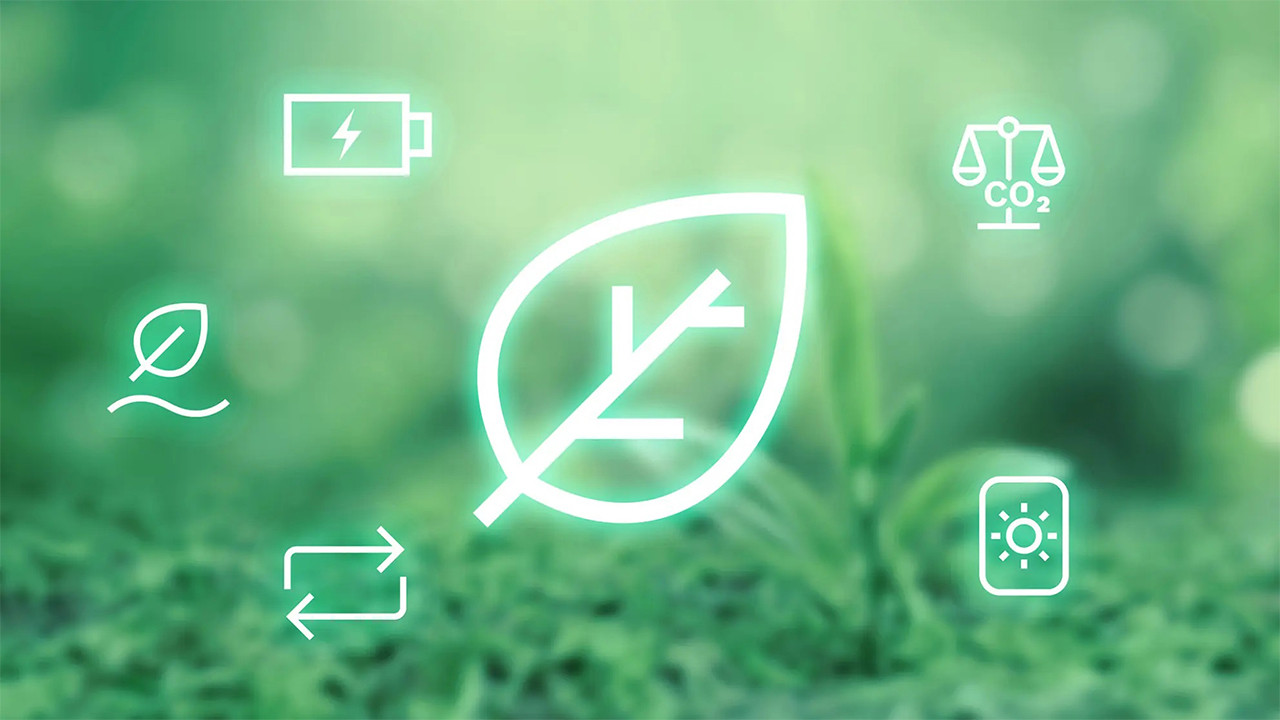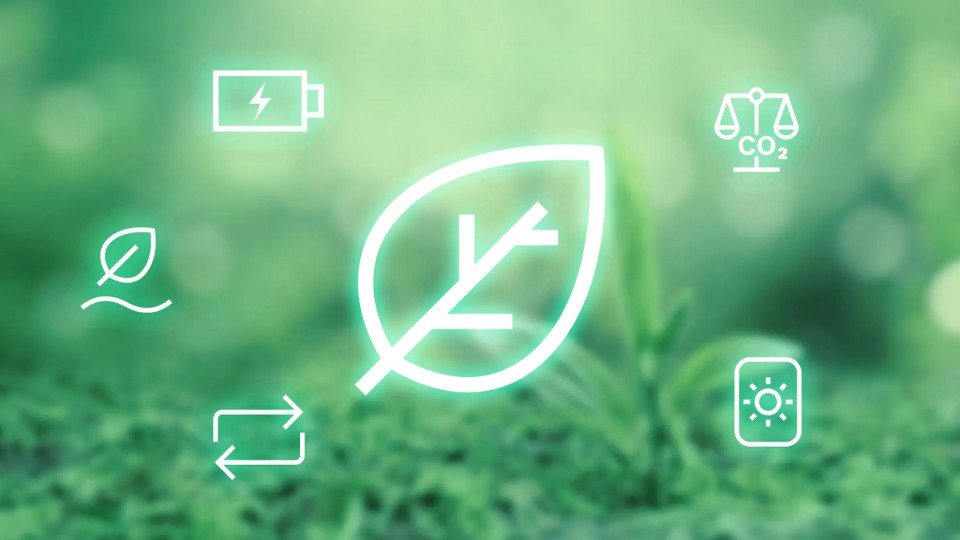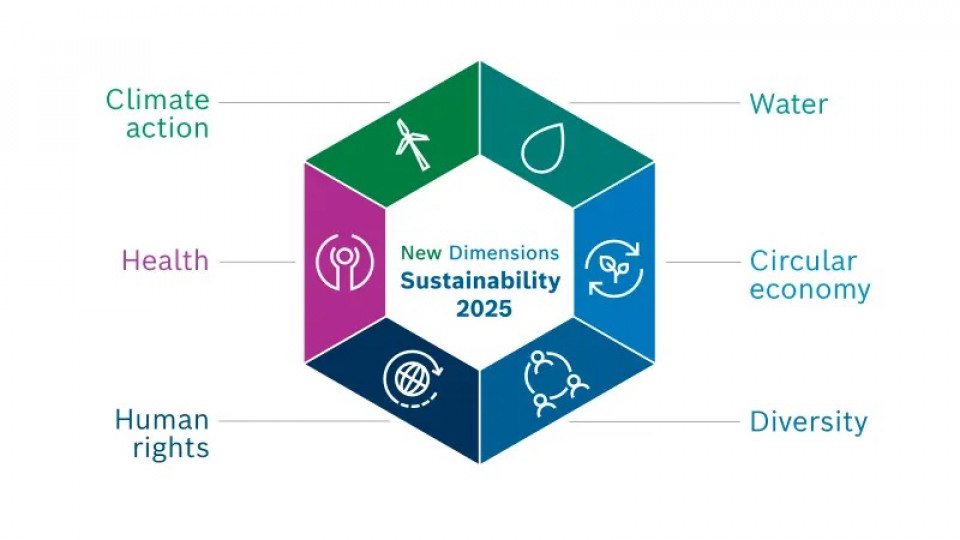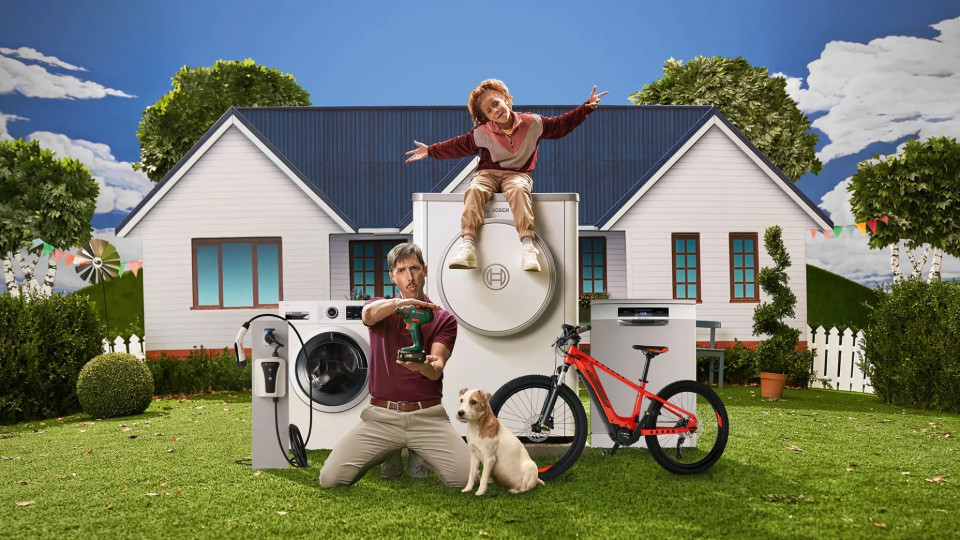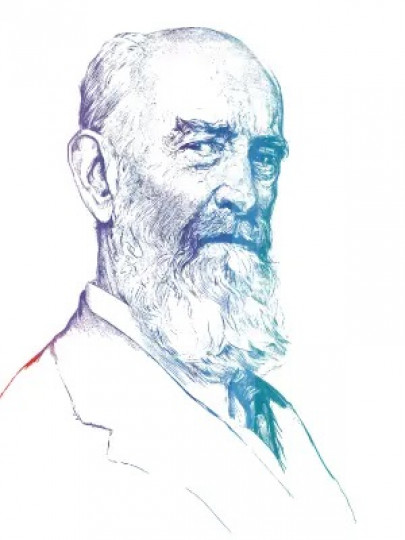Budapest – As a responsible global company, Bosch pays special attention to improving people’s quality of life on an economic, environmental and social level, and protecting the livelihood of present and future generations. Bosch’s sustainability efforts can be traced almost from the company’s foundation. The realization of goals is reflected not only in the company’s daily operations, products and services, but also in the corporate culture.
Economically, environmentally and socially responsible behaviour
For Bosch, sustainability is a core value that is deeply embedded in the company group’s operations and culture. In the long term, the company is committed to keeping environmental protection and social responsibility in mind in addition to economic success. Bosch has a wide product portfolio that is unique in its diversity. The products are the guarantee of safe and sustainable mobility, durable companions in homes, or they efficiently and reliably control industrial systems and machines. “At Bosch, sustainability is a cornerstone of our corporate culture, which defines our everyday lives: the mindset of our associates, all our processes, products and services from design to production. I am convinced that our ‘Invented for Life’ technologies contribute to a better and more sustainable future,” said Dr. István Szászi, representative of the Bosch Group in Hungary and the Adriatic region.
In addition to the above, Bosch aims to find solutions to global social and ecological challenges together with its business partners through a common understanding of ethical and sustainable action. That is why the company strives to minimize the environmental impact of not only its own operations, but also that of the entire supply chain connected to it. These efforts are consistently aimed at the promotion of climate protection measures, the economical use of water and the creation of a reliable circular economy. Furthermore, its activities aim to promote social development and improve the quality of life of people, present and future generations.
From eight-hour work schedule to carbon neutrality
In 1906, Robert Bosch, the founder of the company group, was the first among German industrial companies to introduce the eight-hour work schedule. In 1935, he developed a waste management system at the Feuerbach plant (Germany), then in 1940 he founded the Robert Bosch Hospital. After his death, the Robert Bosch Foundation, also marked with the founder’s name, opened its doors in 1964. “Robert Bosch took on a pioneering role even before we could talk about sustainability and the related economic, environmental and social effects and aspects. His innovative and reforming spirit permeates the company’s operation and culture to this day,” emphasized Dr. István Szászi.
The company’s environmental guidelines were published for the first time in 1973, which already had specific targets for reducing water use, emissions and noise. In 1976, Bosch began manufacturing lambda sensors, which paved the way for the development of three-way catalytic converters, to significantly reduce exhaust emissions. In 1998, Robert Bosch GmbH published its environmental protection report for the first time, and in 2004 it joined the United Nations Global Compact and at the same time introduced its goals for reducing carbon dioxide emissions at the level of the entire company group.
The company has already achieved the first important milestone in the field of carbon neutrality. With its more than 400 locations worldwide, the Bosch Group has been CO₂ neutral overall (scopes 1 & 2) since 2020. The company group achieved carbon neutrality by using four levers: increasing energy efficiency, generating our own energy from renewable sources (new clean power), purchasing electricity from renewable sources (green electricity), and – as a last resort – offsetting the remaining CO₂ emissions. In 2022, residual emissions of 0.7 million tons of CO₂ were offset through carbon credits. Scopes 1,2,3 are used according to the Greenhouse Gas Protocol Corporate Accounting and Reporting Standard.
Sustainability strategy – objectives until 2025
Bosch’s sustainability strategy is based on specific goals in each priority area. The objective “New dimensions – Sustainability 2025” turns the company’s sustainability efforts into specific tasks, and at the same time supports the UN Sustainable Development Goals (SDG) every day with its activities and operations. It regularly compares and measures these goals with its sustainability activities, and then publishes them in its annual sustainability study.
Mónika Hack
+36 70 510 5516
Bosch has been present in Hungary since 1898 with its products. After its re-establishment as a regional trading company in 1991, Bosch has grown into one of Hungary’s largest foreign industrial employers with currently eight subsidiaries. In fiscal 2022 it had total net sales of 2.255 billion forints and consolidated sales to third parties on the Hungarian market of 314 billion forints. The Bosch Group in Hungary employs more than 18,300 associates (as of December 31, 2022). In addition to its manufacturing, commercial and development business, Bosch has a network of sales and service operations that covers the entire country.
The Bosch Group is a leading global supplier of technology and services. It employs roughly 421,000 associates worldwide (as of December 31, 2022). The company generated sales of 88.2 billion euros in 2022. Its operations are divided into four business sectors: Mobility Solutions, Industrial Technology, Consumer Goods, and Energy and Building Technology. As a leading IoT provider, Bosch offers innovative solutions for smart homes, Industry 4.0, and connected mobility. Bosch is pursuing a vision of mobility that is sustainable, safe, and exciting. It uses its expertise in sensor technology, software, and services, as well as its own IoT cloud, to offer its customers connected, cross-domain solutions from a single source. The Bosch Group’s strategic objective is to facilitate connected living with products and solutions that either contain artificial intelligence (AI) or have been developed or manufactured with its help. Bosch improves quality of life worldwide with products and services that are innovative and spark enthusiasm. In short, Bosch creates technology that is “Invented for life.” The Bosch Group comprises Robert Bosch GmbH and its roughly 470 subsidiary and regional companies in over 60 countries. Including sales and service partners, Bosch’s global manufacturing, engineering, and sales network covers nearly every country in the world. The basis for the company’s future growth is its innovative strength. At 136 locations across the globe, Bosch employs some 85,500 associates in research and development, of which nearly 44,000 are software engineers.
The company was set up in Stuttgart in 1886 by Robert Bosch (1861–1942) as “Workshop for Precision Mechanics and Electrical Engineering.” The special ownership structure of Robert Bosch GmbH guarantees the entrepreneurial freedom of the Bosch Group, making it possible for the company to plan over the long term and to undertake significant upfront investments in the safeguarding of its future. Ninety-four percent of the share capital of Robert Bosch GmbH is held by Robert Bosch Stiftung GmbH, a charitable foundation. The remaining shares are held by Robert Bosch GmbH and by a corporation owned by the Bosch family. The majority of voting rights are held by Robert Bosch Industrietreuhand KG, an industrial trust. The entrepreneurial ownership functions are carried out by the trust.
Additional information is available online at www.bosch.hu, iot.boschblog.hu, www.bosch.com, www.iot.bosch.com, www.bosch-press.com, www.twitter.com/BoschPresse

